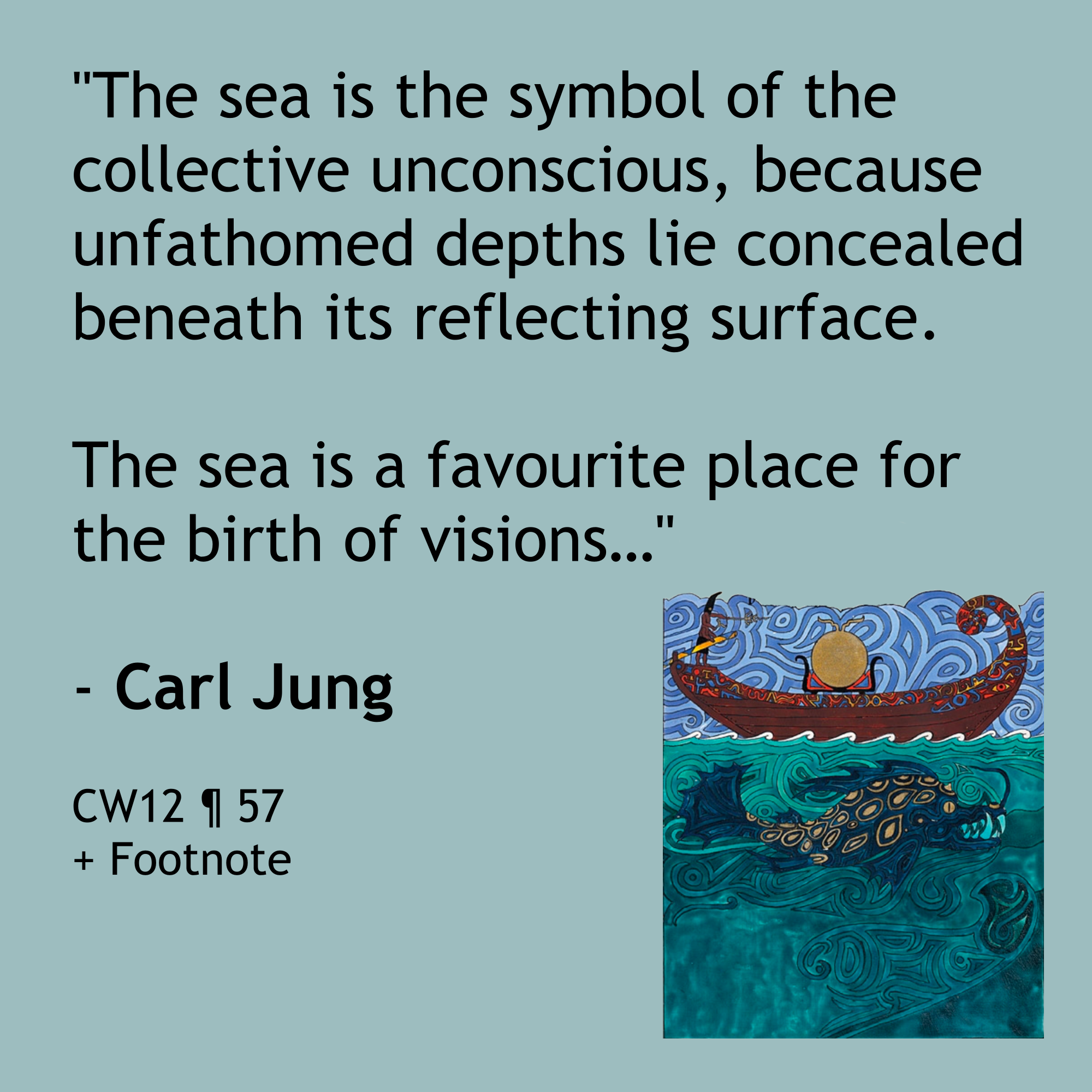Context from CW12 - Visual impression + Jung's commentary:
3, HYPNAGOGIC VISUAL IMPRESSION:
[56] By the sea shore. The sea breaks into the land, flooding everything. Then the dreamer is sitting on a lonely island.
[57] The sea is the symbol of the collective unconscious, because unfathomed depths lie concealed beneath its reflecting surface.(1) Those who stand behind, the shadowy personifications of the unconscious, have burst into the terra firma of consciousness like a flood. Such invasions have something uncanny about them because they are irrational and incomprehensible to the person concerned. They bring about a momentous alteration of his personality since they immediately constitute a painful personal secret which alienates and isolates him from his surroundings. It is something that we “cannot tell anybody.” We are afraid of being accused of mental abnormality—not without reason, for much the same thing happens to lunatics. Even so, it is a far cry from the intuitive perception of such an invasion to being inundated by it pathologically, though the layman does not realize this. Isolation by a secret results as a rule in an animation of the psychic atmosphere, as a substitute for loss of contact with other people. It causes an activation of the unconscious, and this produces something similar to the illusions and hallucinations that beset lonely wanderers in the desert, seafarers, and saints. The mechanism of these phenomena can best be explained in terms of energy. Our normal relations to objects in the world at large are maintained by a certain expenditure of energy. If the relation to the object is cut off there is a “retention” of energy, which then creates an equivalent substitute. For instance, just as persecution mania comes from a relationship poisoned by mistrust, so, as a substitute for the normal animation of the environment, an illusory reality rises up in which weird ghostly shadows flit about in place of people. That is why primitive man has always believed that lonely and desolate places are haunted by “devils” and suchlike apparitions.
Footnote 1: The sea is a favourite place for the birth of visions (i.e., invasions by unconscious contents). Thus the great vision of the eagle in II Esdras 11 : 1 rises out of the sea, and the vision of “Man”—in 13: 3, 25, and 51 comes up “from the midst of the sea.” Cf. also 13 : 52: “Like as thou canst neither seek out nor know the things that are in the deep of the sea: even so can no man upon earth see my Son. ...”
